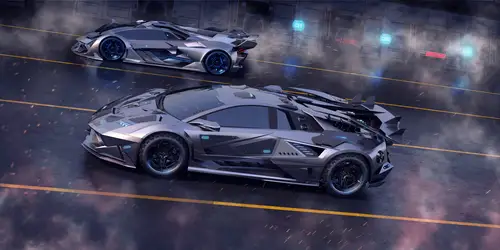Get ready to buckle up and embark on a thrilling journey as we explore the exciting future of transportation. From quiet, emission-free electric vehicles cruising city streets to ultra-fast hyperloops darting through vacuum tubes. Innovations are evolving at an unprecedented rate in our quest for greener, faster and more efficient means of transport. This post delves into what’s next will it be flying cars or self-driving semi-trucks? How about personal pods whizzing above traffic lanes? And let�s not forget possible intercity travel with Elon Musk’s futuristic Hyperloop concept. As we witness groundbreaking advancements that could redefine mobility. There is a chance to get a glimpse into the extraordinary world where science fiction becomes reality. So whether you’re a tech enthusiast, environmental advocate or just curious about tomorrow’s commute – hold tight! You’re in for an electrifying ride as we envision “The Future of Transportation: Electric Vehicles, Hyperloop and Beyond”.
Future of Transportation
The Rise of Electric Vehicles
Since the world shifts towards more sustainable transportation options. Electric vehicles have been experiencing a significant rise in popularity in recent years. The benefits of electric vehicles are numerous, including lower emissions, reduced dependence on fossil fuels, and lower operating costs compared to traditional gasoline-powered cars. Improvements in battery technology and infrastructure have also contributed to the increased adoption of electric vehicles. As more automakers invest in electric vehicle production and governments implement policies to promote their use, the future of transportation is looking increasingly electrified. With advancements in technology and a growing emphasis on environmental sustainability, it is likely that electric vehicles will continue to play a prominent role in shaping the future of transportation.
Hyperloop: The High-Speed Revolution
The Hyperloop is a revolutionary form of transportation that promises to radically change the way we travel. Using a system of low-pressure tubes and magnetic levitation, the Hyperloop can transport passengers at speeds of up to 700 mph, reducing travel times between cities to mere minutes. This innovative technology is not only faster than traditional modes of transportation like trains and planes but also more energy-efficient and environmentally friendly. Companies like Virgin Hyperloop and SpaceX are leading the way in developing this high-speed transportation system, with test tracks already in operation. As the Hyperloop continues to evolve, it has the potential to reshape our understanding of distance and connectivity, ushering in a new era of high-speed travel.
Autonomous Cars: A Leap into the Future
One of the most exciting advancements in transportation technology is the development of autonomous cars. These vehicles have the potential to revolutionize the way we travel, offering a safer, more efficient mode of transportation. With advanced sensors and artificial intelligence, autonomous cars can navigate roads, avoid obstacles, and make decisions in real-time. The integration of these self-driving vehicles into our transportation system could reduce traffic congestion, lower accident rates, and increase overall efficiency. As companies like Tesla, Waymo, and Uber continue to invest in this technology, we are on the cusp of a new era in transportation where cars can drive themselves. Thereby offering passengers a whole new level of convenience and comfort.
Drones and Flying Taxis: Taking Transportation to New Heights
The future of transportation is set to soar with the introduction of drones and flying taxis. These innovative modes of transport promise to revolutionize urban mobility by providing faster and more efficient ways to navigate congested cities. Drones, equipped with the latest technology, are increasingly being used for deliveries, surveillance, and even passenger transport. On the other hand, flying taxis are poised to offer a new form of on-demand urban air travel. This will reduce travel times and easing traffic congestion on the ground. With advancements in battery technology and autonomous flight systems, the sky is no longer the limit when it comes to redefining how we move from place to place.
Environmental Impact and Sustainability in Future Transportation
As the world moves towards a more sustainable future, the environmental impact of transportation is coming under increasing scrutiny. With the rise of electric vehicles and the development of innovative transportation solutions like the Hyperloop, there is hope for reducing greenhouse gas emissions and mitigating climate change. Electric vehicles offer a cleaner alternative to traditional gasoline-powered cars, greatly reducing air pollution and dependence on fossil fuels. The Hyperloop, with its high-speed and energy-efficient design, holds promise for revolutionizing long-distance travel while minimizing its environmental footprint. Embracing these technologies and promoting sustainable practices in transportation will be crucial in creating a greener and more sustainable future for generations to come.

 Exploring the Latest Social Media Trends and How to Use Them
Exploring the Latest Social Media Trends and How to Use Them 10 Hidden iPhone Features You Didn’t Know Existed
10 Hidden iPhone Features You Didn’t Know Existed